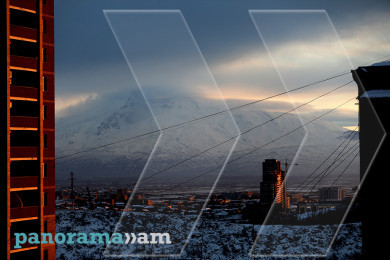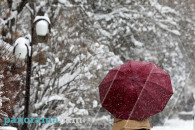
Ministry of Healthcare issues recommendations to prevent the risk of hypothermia
This winter has been rather cold and according to various estimates certain days were recorded with coldest temperature in recent decades. Armenian Ministry of Healthcare warns that since the risk of cold exposure increases as the winter months arrive, and that cold weather has its direct impact on people’s lifestyle and their health alike. Prolonged exposure to any environment colder than the body can lead to hypothermia if people are not dressed appropriately or can't control the conditions.
The ministry details that hypothermia is a potentially dangerous drop in body temperature, usually caused by prolonged exposure to cold temperatures. Hypothermia is most often caused by exposure to cold weather or immersion in a cold body of water. Infants and elderly people are more vulnerable to hypothermia with the most common symptoms of shivering, lack of coordination, fatigue, slurred speech or mumbling for the elders, while typical signs of hypothermia in an infant include bright red, cold skin, low energy.
Hypothermia isn't always the result of exposure to extremely cold outdoor temperatures. An older person may develop mild hypothermia after prolonged exposure to indoor temperatures that would generally be fine for a younger or healthier adult.
The report provides several recommendations to avoid hyperthermia with the general advice to stay indoors during the cold weather. It suggests wearing a hat or other protective covering to prevent body heat from escaping from the head, face and neck, cover the hands with gloves and wear lightweight clothing. In case of the first symptoms of hypothermia it is highly recommended to apply to a doctor. The first aid includes moving the person out of the cold, gently remove wet clothing. Replace wet things with warm, dry coats or blankets. If further warming is needed, do so gradually. For example, apply warm, dry compresses to the center of the body — neck, chest and groin
At the same time, it warns against rewarming the person too quickly, such as with a heating lamp or hot bath as well as giving the person alcohol or cigarettes. Alcohol hinders the rewarming process, and tobacco products interfere with circulation that is needed for rewarming.
Newsfeed
Videos






























